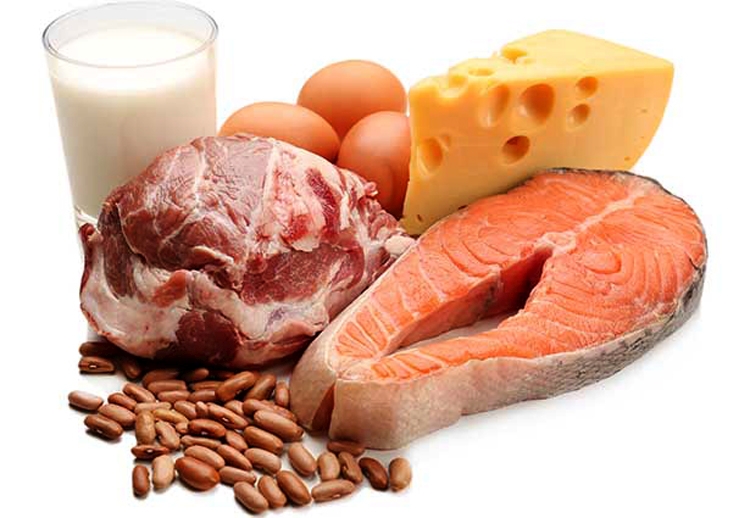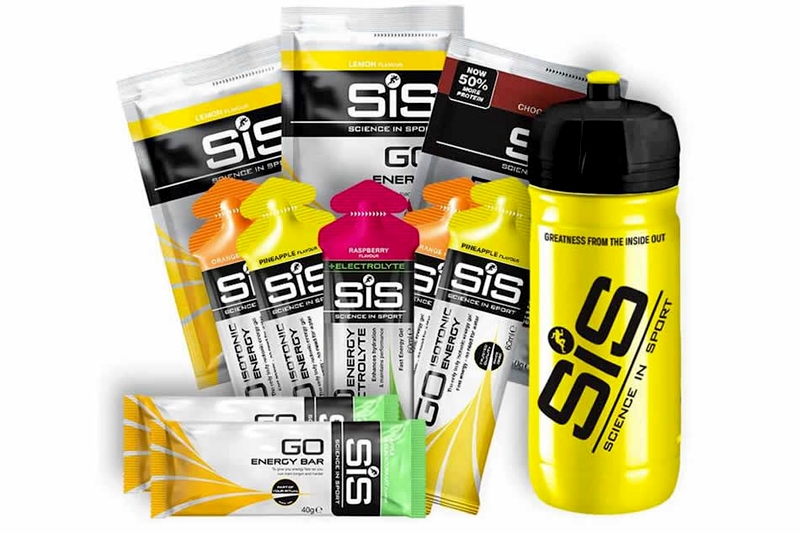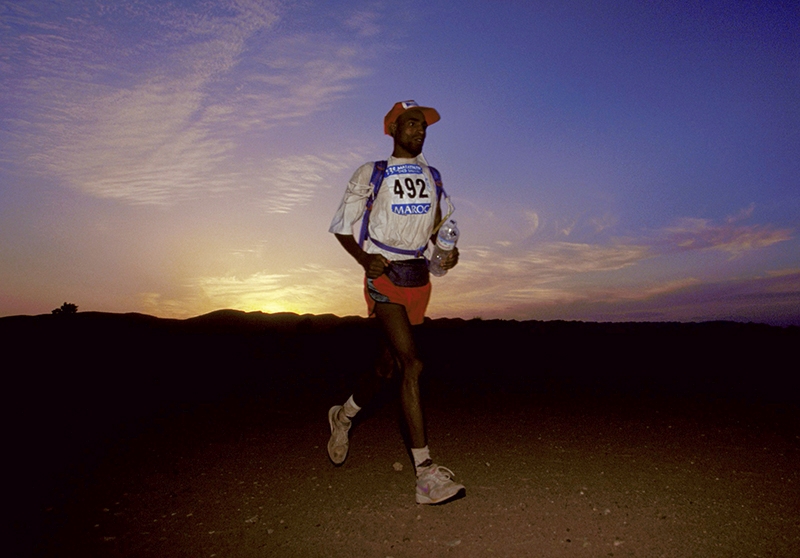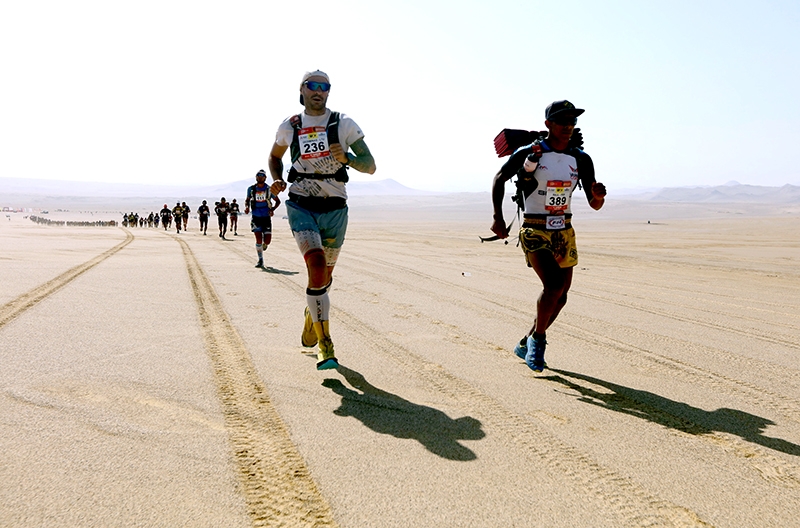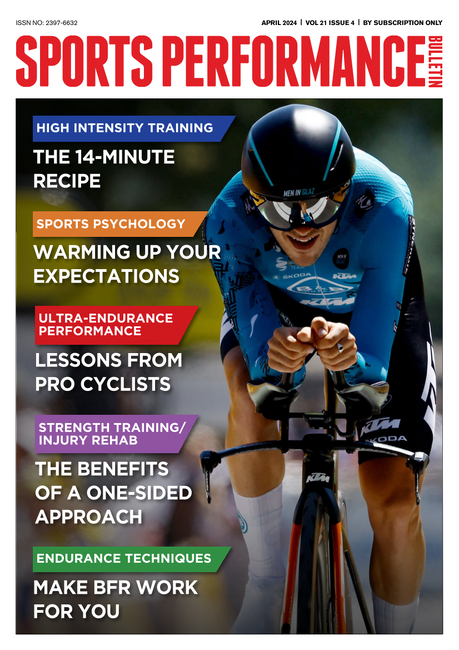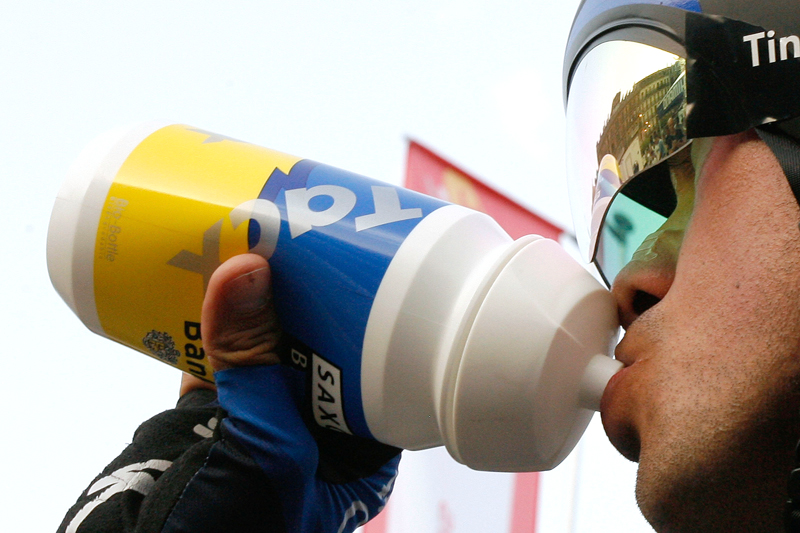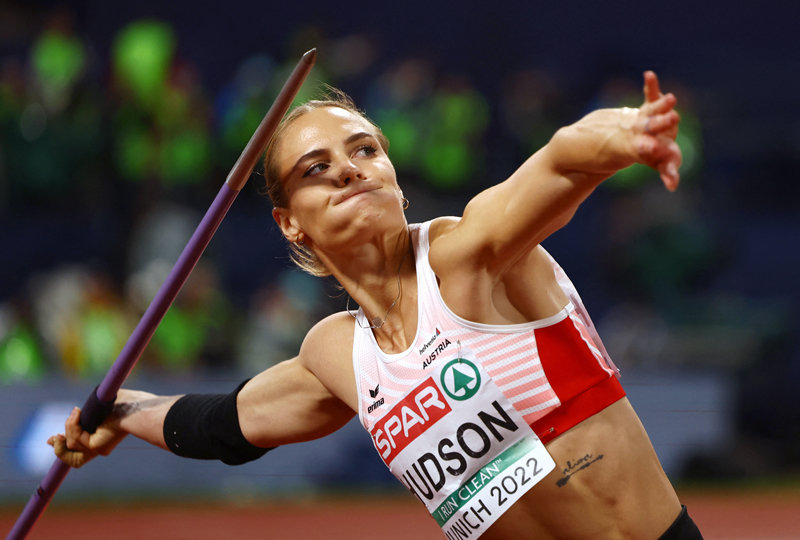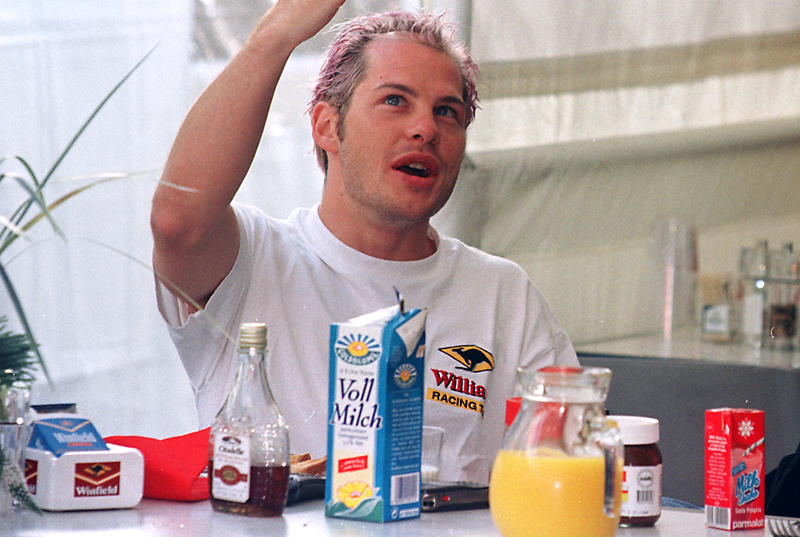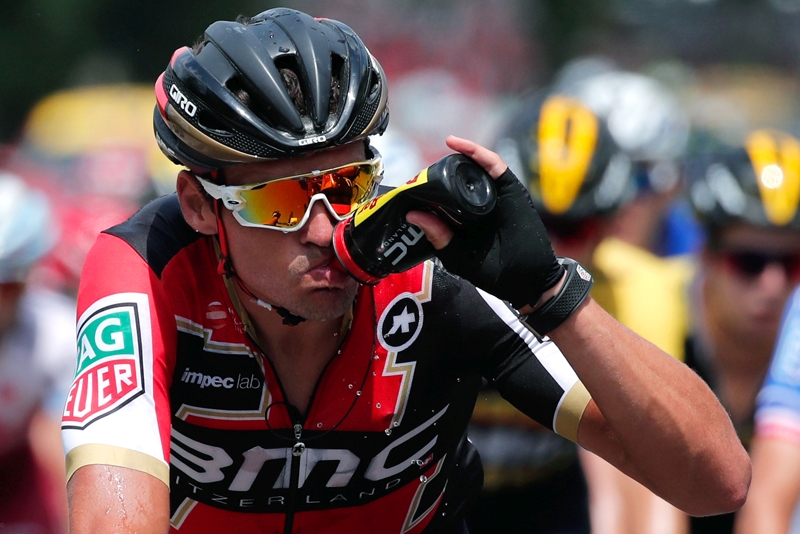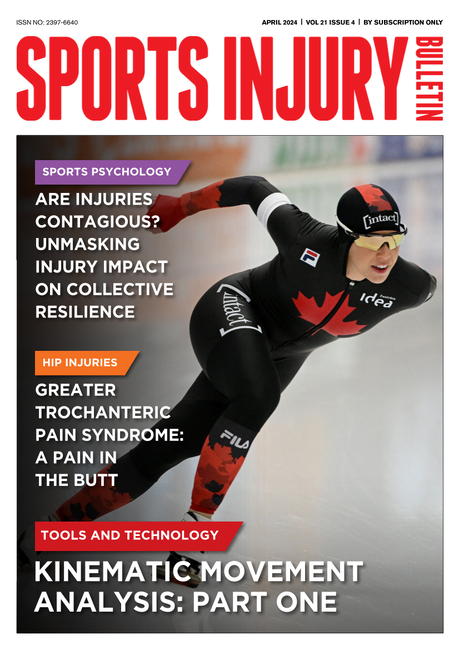You are viewing 1 of your 1 free articles. For unlimited access take a risk-free trial
Ultra-racing: fuel up to keep times down

How effective are the ‘in-race’ nutrition strategies of ultra-distance athletes? Research suggests not very, which can have serious consequences for performance. Andrew Hamilton explains…
This is the time of year that many endurance athletes are preparing to undertake their main challenges of the season. For some, that means a regular program of racing throughout the season. For others however, it’s the lure of a much longer ultra-event – for example, an ultra-distance cycling sportive or ultra-running event - that entices. If you fall into the latter category, your 'in-event' nutrition will play a critical part in determining your success or otherwise.Importance of in-race fueling
Every endurance athlete knows (or should know!) that the muscles can only store enough carbohydrate to fuel about two hour’s worth of vigorous exercise. But many ultra events last far longer than this; for example, a 100-mile sportive will take upwards of five hours while a 100km running event could take 10 hours or longer. The obvious question therefore is whether, and if so how, ultra-athletes can make good the shortfall with in-race fueling.It’s true that during an ultra-event, athletes derive a significant proportion of their energy from fat, most of which is drawn from fat stores. Indeed, one of the main strategies for ultra-training is to undertake long training sessions in a fasted state in order to maximise fat oxidation capacity during exercise (which therefore conserves muscle glycogen stores)(1-3). But be in no doubt that consuming energy (particularly energy in the form of carbohydrate) during ultra-exercise will enhance your performance, regardless of your fat-oxidation capacity. An eloquent illustration of this fact is provided by a New Zealand study, which studied the in-race nutrition practices of 18 ultra-endurance cyclists who were participating in an extremely demanding 384-kilometre (238 miles) race(4).
The nature of the study was purely observational – ie the researchers looked at the nutritional practices of the cyclists during the race without intervening. The key goal was to try and discover if there was a relationship between energy intake during the race (fat, protein and carbohydrate kilocalories) and the cyclists’ race performance – specifically, their finishing times. To do this, each cyclist's support crew was provided with a food diary for their cyclist at race registration, which they were asked to complete. Then on completion of the race, the cyclists were asked to recall their race food and drink intakes. All food and fluids consumed were logged and the data collected was analysed using a computer software package.
Calories count
Overall, the average time taken to complete the race was 16 hours and 21 minutes. When the researchers looked closely at the data, they discovered that the average energy intake of the cyclists was 4,466 kilocalories yet the typical energy expenditure (ie kilocalories burned during the ride) was 6,090 kilocalories – an average shortfall of 1,624 kilocalories. What was more interesting however was the strong correlation between the kilocalories consumed by each cyclist and his or her finishing time. In a nutshell, the more energy a cyclist consumed during the race, the faster their finishing time was likely to be. Or, to put it another way, the greater the energy shortfall accumulated by a cyclist, the slower the finishing time his or her time tended to be.When the researchers broke the results down into fat, protein and carbohydrate intake, they found that only energy intakes from carbohydrate and fat intake were associated with faster times taken to complete the race (the more carbohydrate and fat kilocalories consumed, the faster the times). Protein intake however seemed to have no effect. Meanwhile, although more fat calories were associated with a slighter better time, it was the carbohydrate intake that provided much the stronger association.
Calorie shortfall – a common problem
Ideally, to balance the increased energy expenditure during a race, an optimal nutrition program should ensure adequate energy intake. However, the bulk of the research to date suggests that endurance and ultra-endurance athletes do NOT consume sufficient food and/or energy drinks and gels during an event. This results in a negative energy and fluid balance (and likely poorer performance) during the race, which is demonstrated by their reduced post-race body mass and body fat percentage(5,6).For example, in one study, researchers demonstrated that a 54km mountain ultra-marathon induced a negative energy balance of around 3,700kcals in the participating runners(7). A similar result was also found in cyclists who undertook a 2-day stationary cycling marathon, where the accumulated energy deficit was 3,290kcals(8). To give you an idea of just how common this problem is, figures 1a and 1b present examples of energy balance and deficit in swimming, cycling, running, and triathlon. Looking at the data, it appears that swimming induces a larger energy deficit, which is most likely attributable to the limited access to food and drink during a swimming race (unlike cycling and running). However, in races with duration of more than 24 hours, multi-sport events (such as triathlon) and cycling tend to induce the largest energy deficits.
Figures 1a and 1b: Total energy deficit and energy deficit per hour(9)


Implications for ultra-athletes
The recent research suggests there are two key take-home messages for any athlete preparing for an ultra-event:- There’s a strong possibility that during the event, you may fail to consume sufficient calories to maintain even a reasonable energy balance.
- When you do fail to consume sufficient calories during an ultra-event/race, your performance will inevitably suffer – and the bigger your energy deficit, the more your performance will suffer.
- Easiest on the stomach - ie those that do not result in symptoms of gastric distress such as bloating, cramps, abdominal pain, gas etc.
- Best at providing energy on the move - to assess this, you can use a scoring system based on your perceived exertion for a given time/distance/route.
- Effective at minimizing mental fatigue; monitoring your mental fatigue during training is also a useful tool as mental fatigue and exercise performance are closely linked (see this article).
References
- Metabolism. 1983 Aug;32(8):769-76
- Nutr Metab (Lond). 2017 Feb 20;14:17
- J Physiol. 2016 Dec 23. doi: 10.1113/JP273230
- Int J Sport Nutr Exerc Metab. 2012 Feb;22(1):19-23
- J Strength Cond Res. 2012 Feb; 26(2):307-18
- Int J Sport Nutr Exerc Metab. 2004 Dec; 14(6):709-19
- Appl Physiol Nutr Metab. 2016 Aug; 41(8):872-878
- Sports Nutr. 2007;4:15. doi: 10.1186/1550-2783-4-15
- Nutrients. 2018 Dec; 10(12): 1995
Newsletter Sign Up
Testimonials
Dr. Alexandra Fandetti-Robin, Back & Body Chiropractic
Elspeth Cowell MSCh DpodM SRCh HCPC reg
William Hunter, Nuffield Health
Newsletter Sign Up
Coaches Testimonials
Dr. Alexandra Fandetti-Robin, Back & Body Chiropractic
Elspeth Cowell MSCh DpodM SRCh HCPC reg
William Hunter, Nuffield Health
Keep up with latest sports science research and apply it to maximize performance
Today you have the chance to join a group of athletes, and sports coaches/trainers who all have something special in common...
They use the latest research to improve performance for themselves and their clients - both athletes and sports teams - with help from global specialists in the fields of sports science, sports medicine and sports psychology.
They do this by reading Sports Performance Bulletin, an easy-to-digest but serious-minded journal dedicated to high performance sports. SPB offers a wealth of information and insight into the latest research, in an easily-accessible and understood format, along with a wealth of practical recommendations.
*includes 3 coaching manuals
Get Inspired
All the latest techniques and approaches
Sports Performance Bulletin helps dedicated endurance athletes improve their performance. Sense-checking the latest sports science research, and sourcing evidence and case studies to support findings, Sports Performance Bulletin turns proven insights into easily digestible practical advice. Supporting athletes, coaches and professionals who wish to ensure their guidance and programmes are kept right up to date and based on credible science.
